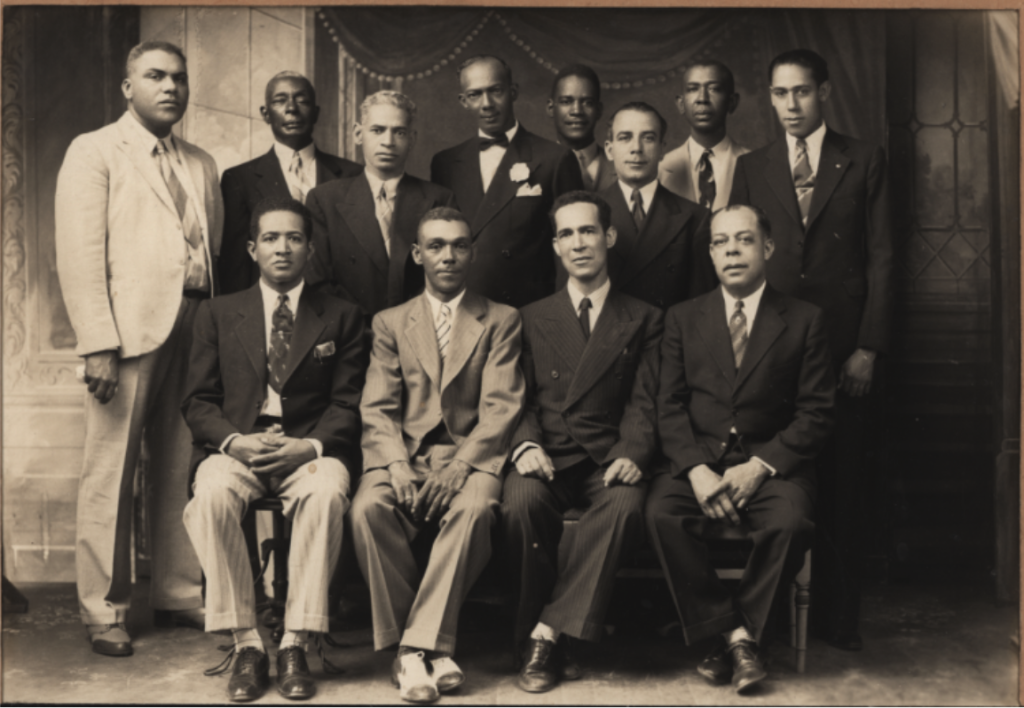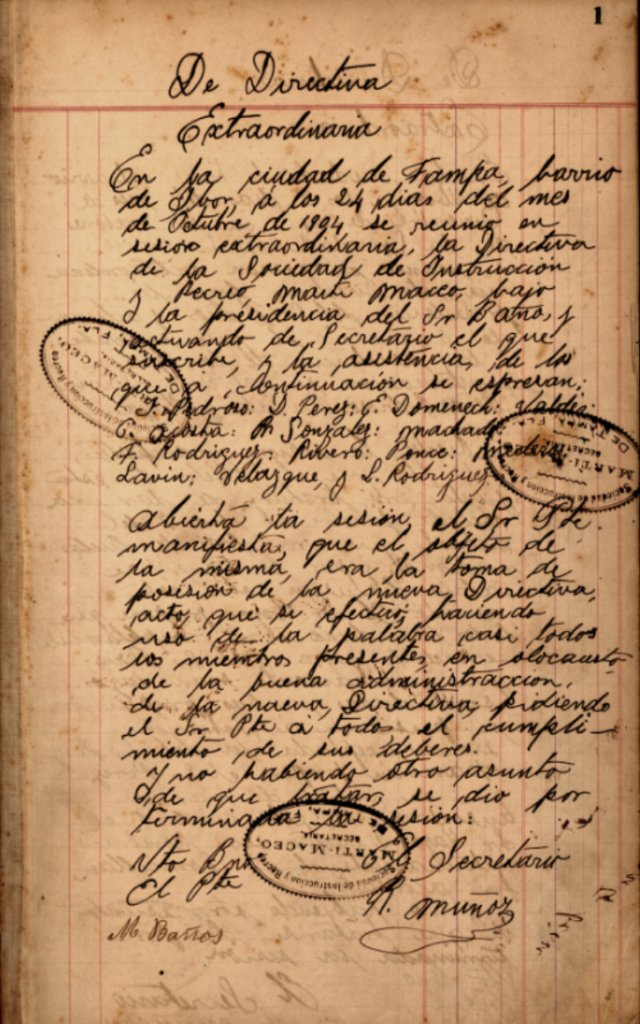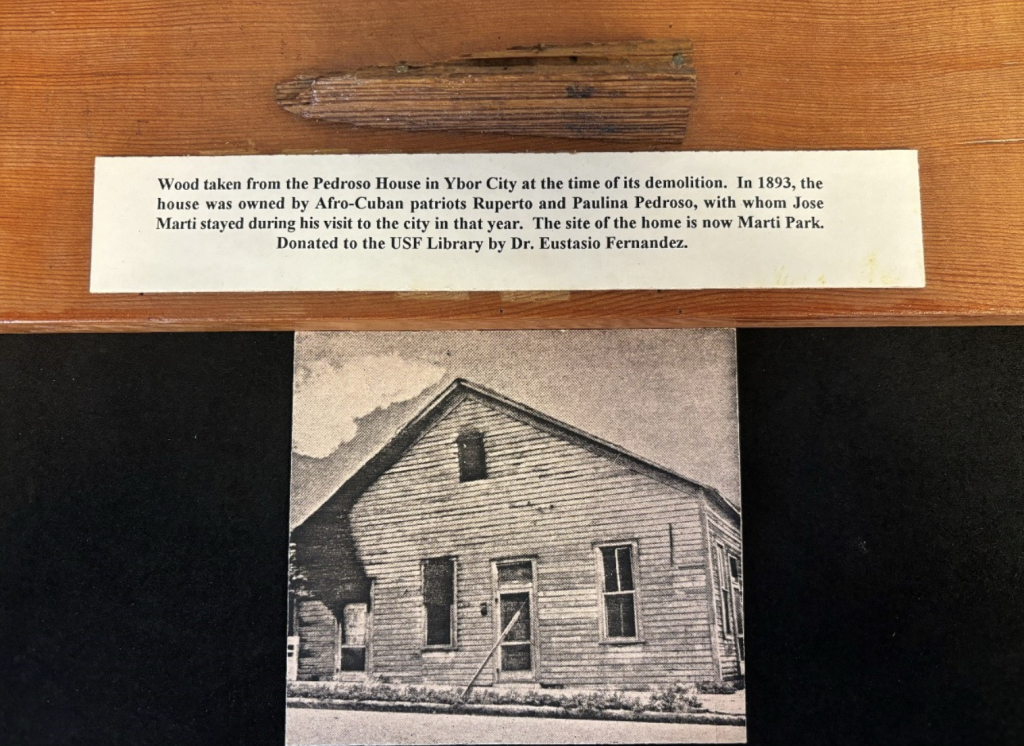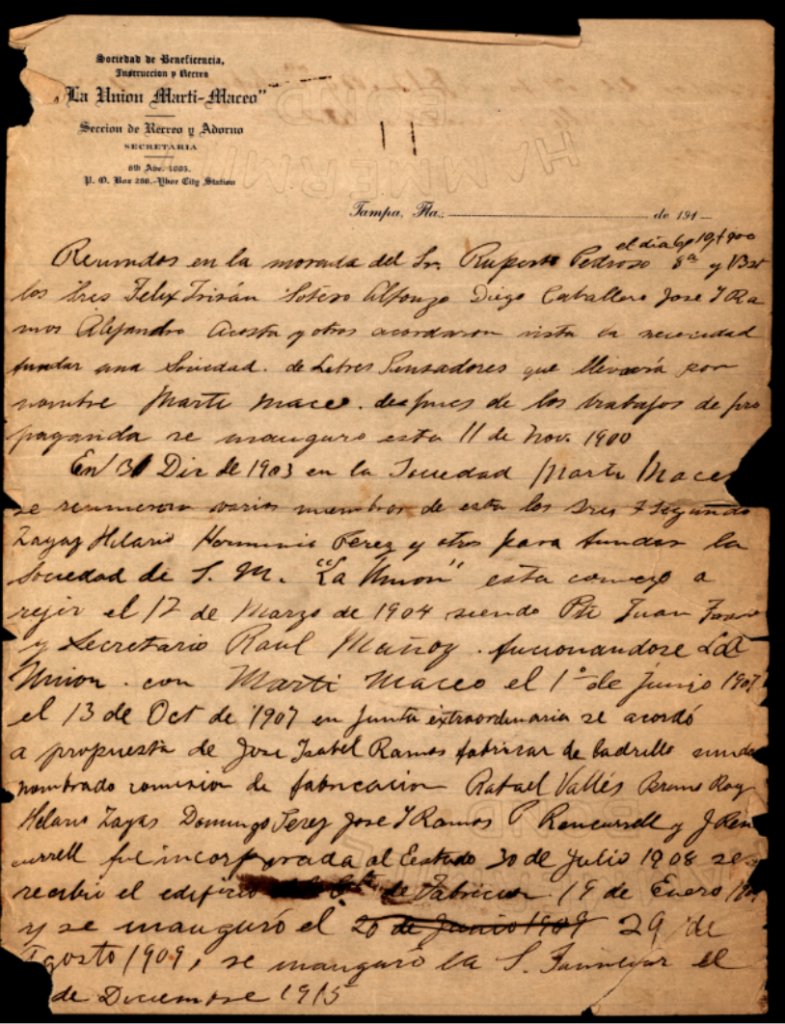By Stephanie Mackin, Visiting Assistant Librarian, Special Collections
Since its arrival in 1983, the Sociedad la Union Marti-Maceo collection has been a popular and heavily utilized collection at the University of South Florida Libraries’ Tampa Special Collections. The uniqueness and historical significance of the Afro-Cuban mutual aid society collection has made it a priority to preserve and is now more accessible than ever due to the efforts of the Special Collections and Digital Collections teams.

With the first round of digitization already available in our Tampa Digital Collections, another round of digitization is on the horizon for additional collection records which include: correspondence, meeting minutes, beneficiary records, photographs, and ephemera related to the Tampa club. In reflection of Black History Month, take a brief moment to learn more about this incredible club and how it became the cultural center of the Tampa Afro-Cuban community.

Tampa mutual aid societies were created out of necessity by immigrant communities. Many immigrants found work at cigar factories and needed a social system that would not only provide health benefits or financial benefits during cigar factory strikes, but they also needed a place to keep their culture and traditions alive. One of the first clubs established in Tampa was Club Nacional Cubano, a club meant to preserve the ideals of unity and freedom that inspired Cuban Independence from Spain, for all Cubans. However, Club Nacional Cubano would quickly feel the un-unifying effects of the Jim Crow Racial Segregation law as the club was forced to divide themselves into two separate clubs, Los Pensadores Marti-Maceo and El Circulo Cubano, just weeks after its establishment [1].

Removed from their club and segregated from their community, the Afro-Cuban members of the original Club Nacional Cubano formed Los Pensadores Marti-Maceo, (The Freethinkers). The club was named after two Cuban heroes Jose Marti and General Antonio Maceo and began in the home of Cuban immigrants Ruperto and Paulina Pedroso. [2] In the center of the Afro-Cuban community, the first official meeting took place on October 26th, 1900, at the Pedroso’s boarding house on Eighth and Thirteenth Street. The Pedrosos were known for their activism and close friendship with Jose Marti. Their home became the gathering spot to hear and see the Cuban revolutionary when he would visit Tampa. [3] According to a manuscript written by members of the Afro-Cuban society, in 1905, Los Pensadores Marti-Maceo merged with La Union, an Afro-Cuban club in West Tampa, and established themselves as the Sociedad la Union Marti-Maceo.

With the two clubs joining forces, Sociedad la Union Marti-Maceo was able to offer more benefits for just 50 cents a week in membership dues. The club also began to host festivals and events to raise enough money to build their very own clubhouse. In 1908, the club built a two-story building on Sixth Avenue and Eleventh Street; the clubhouse included a theater, social hall, and several club rooms. For many years, the Afro-Cuban club had great success until the strict immigration laws of 1923 caused the club to take on very few new members and the club membership dwindled to below 100. However, despite the effects of the depression era and their original clubhouse and the Pedroso house being demolished in the 1960s due to the urban renewal initiative, the society is still active and thriving in Tampa today. [4] To learn more about the society’s current activities and membership, visit their website at Sociedad La Union Marti-Maceo.
Want to learn more?
Discover more documents and photos related to the Afro-Cuban social club by browsing the digital collection and finding aid of Sociedad la Union Marti-Maceo records.
Explore more…
Continue your research with more digital and special collections, like:
- Anthony P. “Tony” Pizzo collection
- Otis R. Anthony African Americans in Florida Oral History Project
- El Circulo Cubano records
- Burgert Brothers Collection of Tampa Photographs
- Robertson and Fresh collection of Tampa Photographs.
References
[1] About: Marti Maceo Ybor City. Sociedad la Union Marti-Maceo. (n.d.) https://www.martimaceocc.org/about
[2] Greenbaum, Susan D., “Afro-Cubans in Ybor City: A Centennial History” (1986). Sociedad la Unión Martí-Maceo Records. 1. https://digitalcommons.usf.edu/marti_maceo_records/1
[3] The Tribune Company. “La Casa de Pedroso 1893.” Historical Marker, 1961, Tampa, Florida.
[4] City of Tampa. “Sociedad La Union Marti-Maceo.” Historical Marker, 1998, Tampa, Florida.